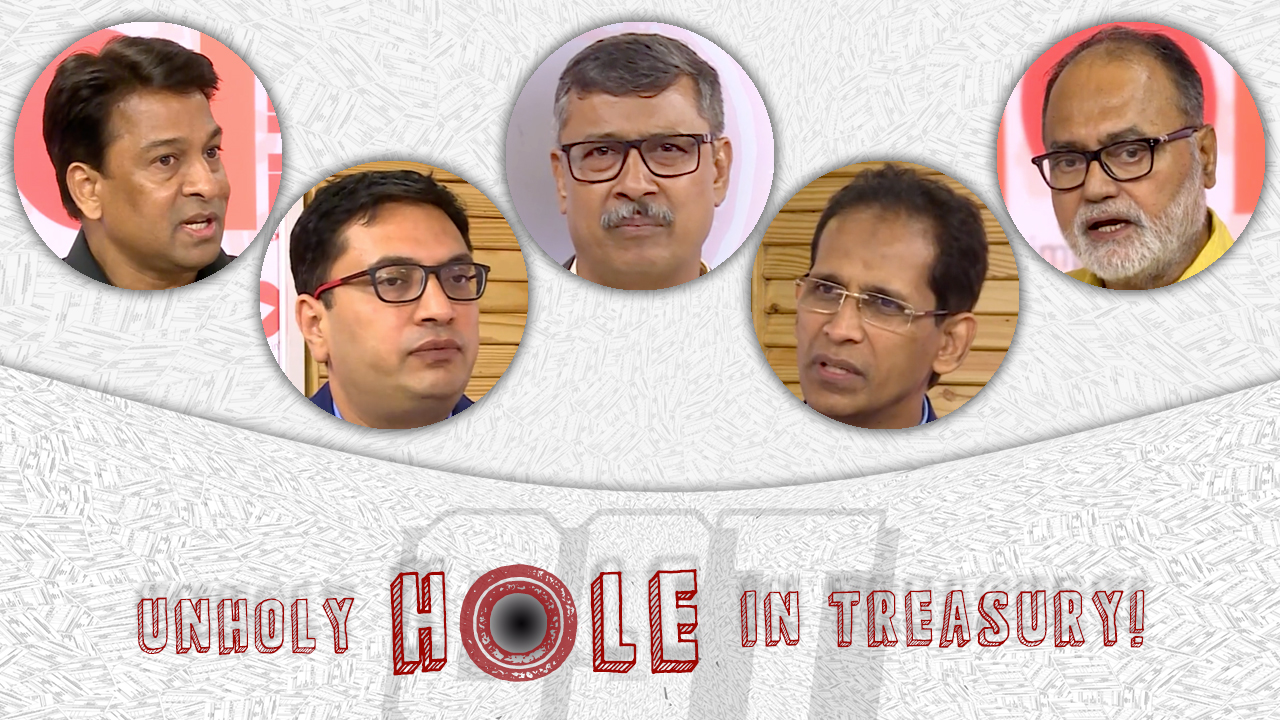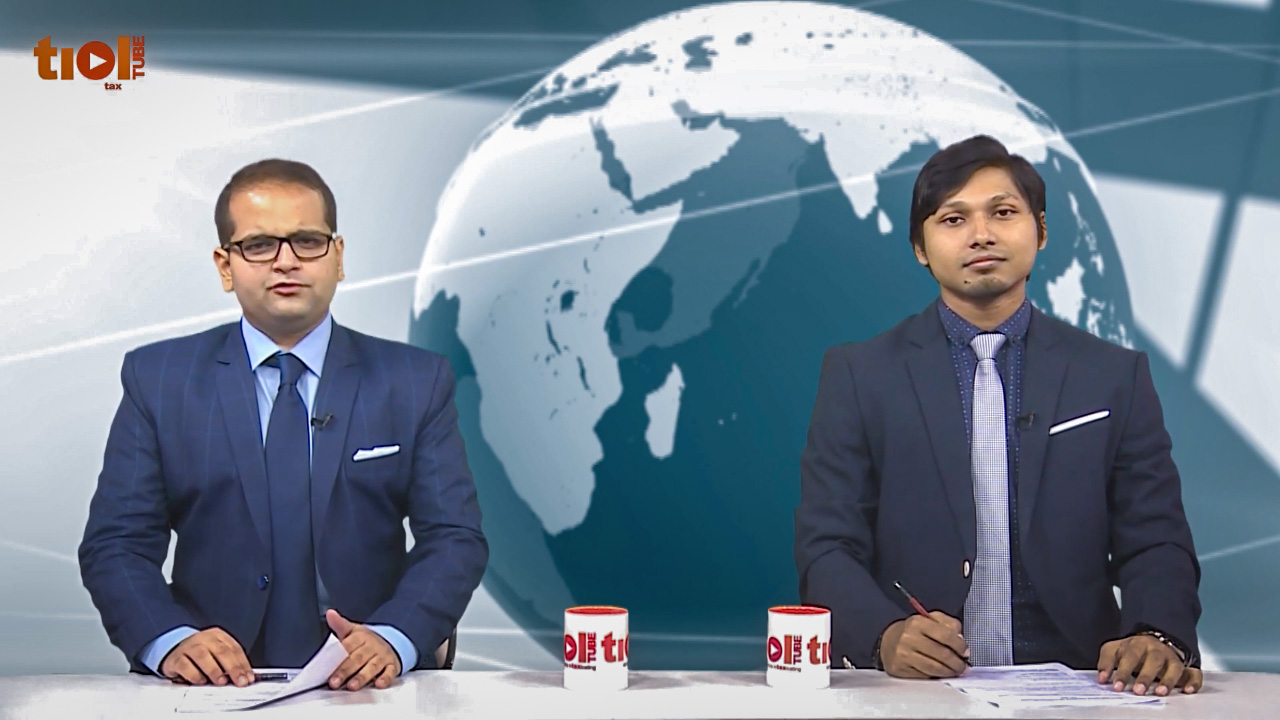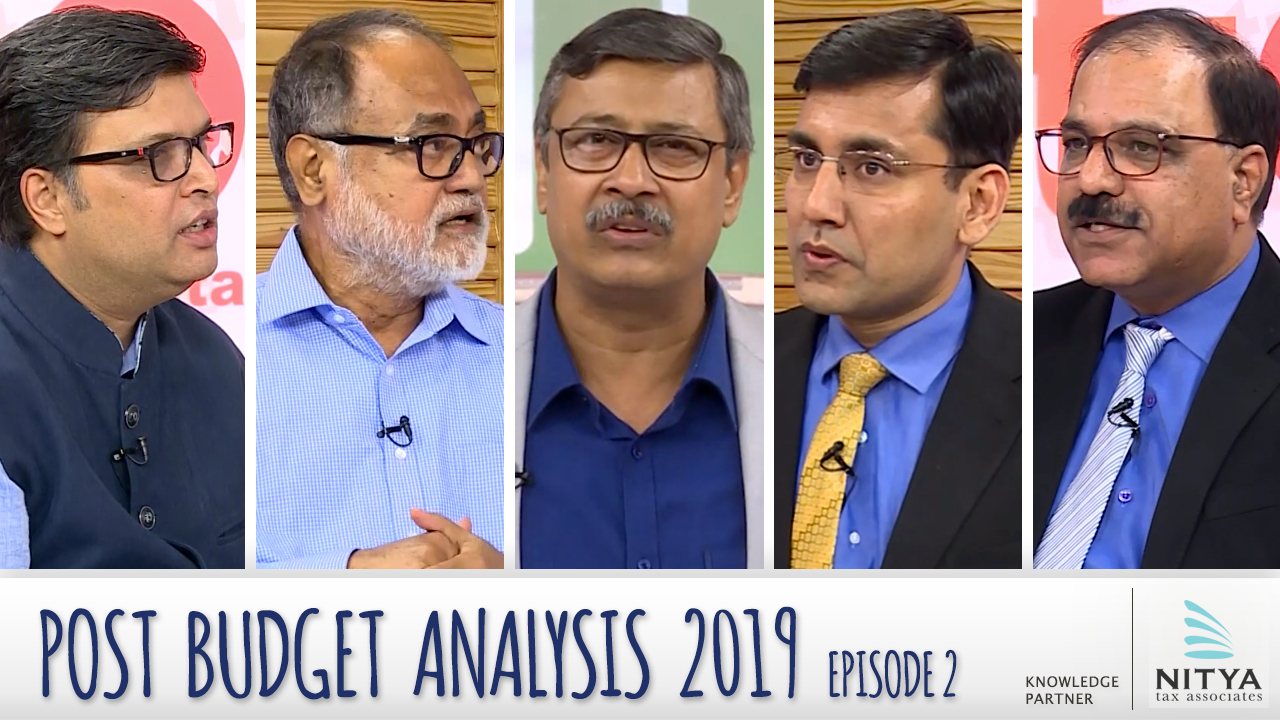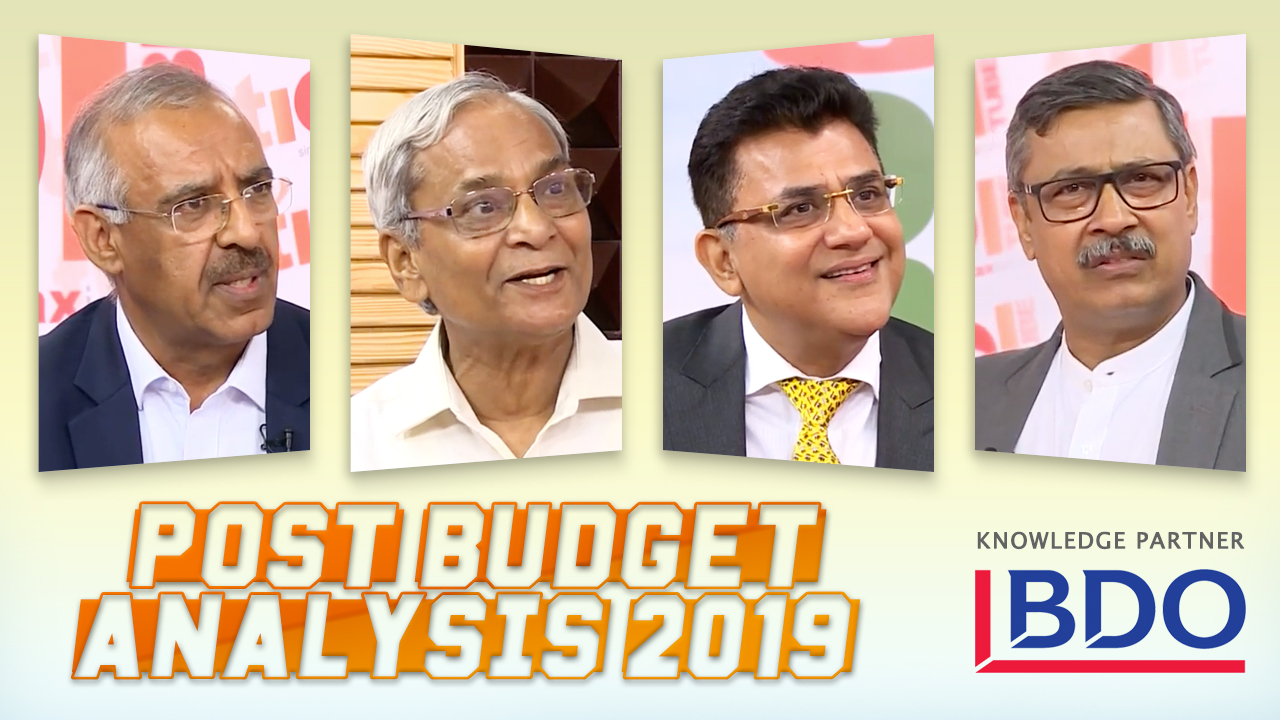|
SERVICE TAX
2019-TIOL-1687-HC-PATNA-ST
Vrindaban Construction Vs CCE & ST
ST - Issue which falls for consideration herein is whether, in absence of any adjudicatory proceeding initiated by the competent authority under the Service Tax Act for assessment, quantification and consequentially fixation of liability of service tax for the contract executed by the petitioner company at the request of the respondent Power Distribution Company under a valid agreement, on a mere audit objection raised by the Accountant General as regarding liability admissible under the Service Tax Law at the level of the Power Distribution Company, the Power Distribution Company had either locus or lawful authority to not only issue the impugned notice in furtherance of such audit objection and as per its understanding of the legal position, but to even proceed further for making recovery of the said amount which in total comes to Rs. 25,03,919/-, by enforcement of the Bank Guarantee maintained with them under the terms of contract entered into between the parties i.e. the petitioner and the Power Distribution Company.
Held: The issue of admissibility of Service Tax on the contract executed by the petitioner is yet to be initiated by the Service Tax Department - Bench is at a complete loss to understand the manner in which the Power Distribution Company has proceeded in the matter because there are several issues which have been canvassed by the parties and which remain unanswered in absence of any adjudication on the issue by the competent authority under the Service Tax Department - Bench is in no confusion to hold that in absence of adjudication by the respondent Department on the issue, it is not required to express itself as to whether the contract executed by the petitioner was exigible to service tax and if the answer was ‘Yes', then the extent of liability to be suffered by each of the party - such determination is left at the wisdom of the Department to come to a just conclusion on the issue obviously, in a duly constituted proceeding and on hearing the parties - Bench also expresses its anguish on the laid back attitude of the Service Tax Department in not coming forward to resolve the issue of taxability as well as the fixation of liability, even when this matter is pending for last 2 years - Since this is purely a contractual dispute and requires interpretation of the terms of the contract, Bench leaves it open for the parties to resolve the issue of payability before the appropriate forum - However, while observing thus, Bench is of definite opinion that before such issue could be resolved, the respondent Power Distribution Company had no business to enforce the Bank Guarantee for realizing their part service tax especially where there is nothing in the agreement which allows them to make such recovery nor the service tax statute allows them to make such recovery - it is on a complete misappreciation of the legal position as well as misinterpretation of a contractual obligation that the authorities in the Power Distribution Company have mechanically followed the audit objection of the Accountant General to take coercive action which has no lawful sanction - notice issued by the respondent no. 4 Accounts Officer, Bhojpur Electrical Circle, Ara together with the notice issued by the Accounts Officer, Electricity Supply Circle, Patna, is quashed and consequentially the respondents no. 2 to 4 are directed to remit the amount recovered within a period of eight weeks from today - Writ petition is allowed: High Court
- Petition allowed: PATNA HIGH COURT: PATNA HIGH COURT
2019-TIOL-2191-CESTAT-DEL
Innovative Clad Solutions Pvt Ltd Vs CCE & ST
ST - Notification No. 17/2011-ST as amended by Notification No. 40/2012 - ST - Refunds were rejected by the lower authorities for being filed beyond the time limit of one year from the end of month in which actual payment of service tax was made by the SEZ unit to the registered service provider - appeal to CESTAT.
Held: Admittedly there was no former Application seeking condonation of the said delay except the oral submission of appellant before adjudicating authority below about shortage of staff - said plea of the appellant has duly been dealt with in the Order under challenge holding the said explanation is not satisfactory as the appellant was otherwise running business and all other operations pertaining to their business - Law has been settled that the exemption Notification has to be construed strictly and there has to be strict interpretation of the same by reading the same literally - Once the said eligible criteria has not been met with or any condition pre-requisite for the said benefit has not been met the benefit of exemption Notification cannot be made available to the assessee - no infirmity in the orders being challenged - Appeals dismissed: CESTAT [para 6]
- Appeals dismissed : DELHI CESTAT
2019-TIOL-2190-CESTAT-MAD
International Engineering Agencies Vs Commissioner of GST & CE
ST - Rule 5 of CCR - Refund claim made by appellant of balance lying unutilized in their cenvat account at the time of closure of business was rejected on the ground that the same could be allowed only when the cenvat credit was related to services used for the export of services - appeal to CESTAT.
Held: Term "Total turnover" used in the above formula in rule 5 of CCR includes the sum total value of all excisable goods cleared during the relevant period and it doesn't restrict the inclusion of value of the excisable goods exported, per se - Rule 5 facilitates the refund of Cenvat credit not merely of the excisable goods exported and, therefore, to say that Rule 5 provides for refund of un-utilized Cenvat only in the cases of export of service is incorrect - accepting the interpretation of the Commissioner (Appeals) would lead to serious anomaly, which cannot be the intention of the legislation - law cannot lead to a situation where a bonafide tax payer's amount could be denied and withheld, for no fault of his - a bonafide assessee cannot be left remediless with his/its money in the form of credit stuck with the Government - when Article 265 of Constitution mandates that no tax be collected without the authority of law, it is incumbent upon the Revenue to justify even retention, when there is bonafide payment/credit - In this case, there is no allegation or not even a whisper about unjust enrichment - after rejecting appellant's refund claim, apparently the same is retained without ordering deposit into Consumer Welfare Fund - It is clear that, therefore, both rejection and retention become contrary to the provisions of the statute - Bench is of the considered view that the appellant's claim for refund is in order for which reason, the impugned order is set aside - Appeal is allowed with consequential benefits: CESTAT [para 4.2, 5]
- Appeal allowed : CHENNAI CESTAT
2019-TIOL-2189-CESTAT-ALL
Navneet Kumar Singh Vs CCE & ST
ST - Delay of 556 days - The only reason attributed by assessee for the said huge delay of 556 days in presenting the said appeal is death of his wife on 05.03.2016 - The assessee has contended that on account of her death, he was completely shocked and depressed and could not file the appeal - However, the assessee had not shown that on account of his being shocked and depressed, all the other activities including his business activity was stopped by him - Admittedly, an unfortunate incident happened on 05.03.2016 but the appeal stands filed in February, 2018 i.e. almost after a period of two years and during the said period of two years the assessee attended all other works including his business - The said fact cannot be adopted as a reasonable cause for the delay in filing the present appeal - The amount of service tax involved is much on the lower side i.e. Rs.62,141/- and the issue according to revenue is also settled against the assessee - As such, no justifiable reason found to condone the delay - Accordingly, COD application is rejected - Inasmuch as, the delay have not been condoned, the appeal is dismissed as bared by limitation: CESTAT
- Appeal dismissed: ALLAHABAD CESTAT
CENTRAL EXCISE
2019-TIOL-1686-HC-MUM-CX
Cipla Ltd Vs CCE
CX - Appellant is manufacturing PP medicines and also non-excisable goods viz. medicaments containing alcohol or narcotic drugs within same manufacturing premises on which no excise duty is payable - since CENVAT credit availed on inputs used in manufacture of such non-excisable goods, Adjudicating Authority confirmed demand of CENVAT and also appropriated an amount of Rs.1,92,86,034/- paid by appellant; demand of interest also made along with penalty - appellant contested the imposition of interest and penalty before CESTAT - Tribunal relied upon the Apex Court decision in case of Ind-Swift Laboratories - 2011-TIOL-21-SC-CX wherein it is held that in view of the mention of the words "taking credit or utilization” in rule 14 of CCR, interest is chargeable - in the matter of imposition of penalty, CESTAT noted that as regards a huge CENVAT credit demand of Rs.1.92 crores, adjudicating authority had granted substantial relief by imposing penalty of Rs.50,000/- only and which is very reasonable - holding that the order does not require any interference, the same was upheld and appeal was dismissed - Assessee in appeal before High Court.
Held: Representative of appellant had confirmed that the inputs, on which the credit was reversed, were exclusively used for the manufacture of non-excisable products; that only on pointing out these facts during the course of audit, the Appellant had reversed the cenvat credit - Explanation to Rule 8 of the Central Excise Rules, 2002 clearly provides that the expression 'duty' or 'duty of excise ', shall include the amount payable in terms of the Cenvat Rules - Commissioner has, therefore, rightly rendered a finding that the Appellant had contravened the provisions of Rule 3(1)(i) of the Cenvat Credit Rules, read with Rule 2(d), 2(h) and 2(k) thereof, by wrongly taking Cenvat credit of central excise duties paid on inputs which had not been used to manufacture the excisable goods to the extent of Rs. 1,92,86,034/- and thus became liable to interest in terms of Rule 14 of the Cenvat Credit Rules, 2004 - Rule 14 of the Cenvat Credit Rules, thus, was clearly attracted to the facts of this case during the relevant financial years which were subject-matter of this proceeding - Even if the Appellant had not utilized such Cenvat credit, ultimately, since the Appellant had admittedly availed of the Cenvat credit on the entire inputs knowingly well that the entire inputs would not be used exclusively for excisable goods, the Appellant was liable to pay interest under Rule 14 of the Cenvat Credit Rules - CESTAT has rightly adverted to the Judgment of the Supreme Court in the case of Union of India vs. Ind-Swift Laboratories Ltd. - 2011-TIOL-21-SC-CX and has rightly rendered a finding of fact that the Appellant had taken Cenvat credit knowingly well that entire inputs would not be used exclusively for excisable goods and, thus there was no doubt that the Cenvat credit was availed of wrongly by the Appellant - no infirmity in the order passed by the Commissioner, Customs and Central Excise, as well as by the CESTAT - Commissioner was, thus, right in directing the Appellant to pay interest in the sum of 14,62,497/- on the wrongly availed Cenvat credit of Rs. 1,92,86,034/- in terms of Rule 14 of the Cenvat Credit Rules, 2004, read with Section 11AB of the Central Excise Act, 1944 and was also right in imposing the penalty of Rs. 50,000/- upon the Appellant under the provisions of Rule 15 of the Cenvat Credit Rules, 2004 in the facts and circumstances of this case - substantial question of law (A) & (B) is answered in the affirmative against the assessee and in favour of the Revenue: High Court [para 20, 21, 25, 29, 31, 32]
CX - Whether the amendment to Rule 14 of Cenvat Credit Rules, 2004 vide Notification No. 18/2012-CE(NT) dated 17.03.2012 clarifies the position for the period prior to the amendment or is only prospective in operation.
Held: Bench is of the view that the said amendment to Rule 14 of the Cenvat Credit Rules, 2004, vide Notification dated 17 March 2012 would apply only with prospective effect and not with retrospective effect - No such issue was raised by the Appellant before the Commissioner and also before the CESTAT - Be that as it may a plain reading of the said Notification dated 17 March 2012 clearly indicates that such amendment was applicable only with prospective effect - It is also an admitted position that the notice of demand was issued by the Respondent upon the Appellant much prior to the date of said Notification dated 17 March 2012 - No benefit of such amendment thus can be availed of by the Appellant - substantial question of law is answered accordingly: High Court [para 33]
- Appeal dismissed: BOMBAY HIGH COURT
2019-TIOL-2188-CESTAT-MAD
Madras Cements Ltd Vs Commissioner of GST & CE
CX - The assessee-company manufactures Cement - It availed Cenvat credit of duty paid on inputs, capital goods and service tax paid on input services - It entered into an agreement with M/s CECL for providing WCS for civil construction of new kiln for manufacturing Cement - M/s CECL paid service tax on composition scheme under works contract service as per Notification 32/2007-ST - The Revenue opined that the assessee was ineligible for credit on cement, MS angles, channels used for constructing the kiln - It opined that after construction, the inputs & capital goods became immovable property, due to which the credit on such items was not available - SCN was issued proposing to recover Cenvat credit with interest & to impose penalties - On adjudication, the demands were confirmed with interest, but penalty was dropped - Such findings were upheld by the Commr.(A) - On appeal, the Tribunal remanded the matter - On re-adjudication, the duty demands & interest were re-iterated - Hence the present appeal.
Held: The Tribunal remanded the matter with directions to examine the applicability of the decision in Vandana Global Ltd. Vs. Commissioner of Central Excise - However, this decision was overruled by the Gujarat High Court in Mundra Ports & Special Economic Zone Ltd. Vs. Commissioner of Central Excise and by the Chattisgarh High Court in Vandana Global Ltd wherein it was held that such items were eligible for credit - Moreover, Explanation (2) to the definition of 'inputs' during the relevant period (April 2009 to June 2009) states that inputs include goods used in the manufacture of capital goods which are further used in the manufacture of factory - It was amended w.e.f. 07.07.2009, so as to restrict the use of cement, angles & channels for construction as well as for making support structures of capital goods - Hence the denial of credit is unjustified & the O-i-A in challenge is quashed: CESTAT
- Assessee's appeal allowed : CHENNAI CESTAT
2019-TIOL-2187-CESTAT-BANG
Mapal India Pvt Ltd Vs CC, CE & ST
CX - The assessee is engaged in manufacture of excisable goods - The department found that the assessee have not produced documents on which they have taken credit to the Department and hence it appears that assessee have availed irregular CENVAT Credit on improper documents or without valid documents and the amount being irregular credit is liable to be recovered with interest and penalty - As per the purchase orders, assessee is supposed to supply the goods at the buyer's premises and the price of the goods include outward freight - The various circular issued by the Board in year 2007, 2014 clearly show that evidences of parties is to be ascertained as to when the property in goods passes along with the other documents i.e. purchase order and invoices - The subsequent Circular issued in 2018 does not help the assessee because once the Apex Court has declared the law, the Circular issued by Board cannot override the judgment of Apex Court - By following the ratios of the Apex Court and the decision in case of Ultra Tech Cement - 2018-TIOL-42-SC-CX , there is no infirmity in impugned order demanding the cenvat credit wrongly availed by assessee with regard to GTA - As far as CENVAT credit on CHA service is concerned, the services rendered by CHA falls under the definition of input service and therefore the assessee is entitled to CENVAT credit on CHA services - Further regarding the credit on insurance service, assessee submitted that these services pertain to General insurance service of employees and marine insurance of goods which are not excluded by amendment in definition of input service w.e.f. 01/04/2011 - Further on perusal of amendment in input service w.e.f. 01/04/2011, General Health insurance is excluded from the definition of input service - Therefore, assessee is not entitled to CENVAT credit on insurance service, as held by Commissioner (A) also - As far as invoking the extended period of limitation and imposition of penalty is concerned, there were divergent views during the period in dispute on the issue, therefore the allegation of suppression with intent to evade payment of duty is not sustainable - The demand beyond the normal period of limitation is set aside as there was no intention to evade payment of duty - Therefore, the penalties imposed on assessee are also not sustainable and hence set aside - The impugned order in respect of demand for the normal period with interest is upheld and penalties are set aside: CESTAT
- Appeal disposed of : BANGALORE CESTAT
CUSTOMS
2019-TIOL-1657-HC-MAD-CUS
Sam Gypsum Pvt Ltd Vs ACC
Cus - Petitioner submits that a statutory appeal is available against the impugned order under Section 128 of the Customs Act, 1962 and that such statutory appeal lies to Commissioner (A) - It is also submitted that at the time of filing of instant writ petition, the Office was vacant, but an Officer has since been appointed - The petitioner submits that he has instructions to withdraw this writ petition - This writ petition is dismissed as withdrawn: HC
Writ petition dismissed : MADRAS HIGH COURT |
|







